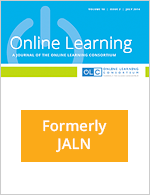The Development of a Remote Laboratory for Internet-Based Engineering Education
The development of feasible and cost-effective remote engineering and science laboratories is one of the most important problems facing the progress of online technical education. In this paper, we describe the development of a complete remote laboratory for the instruction of control engineering. Equipped with common industrial sensors and actuators,...

